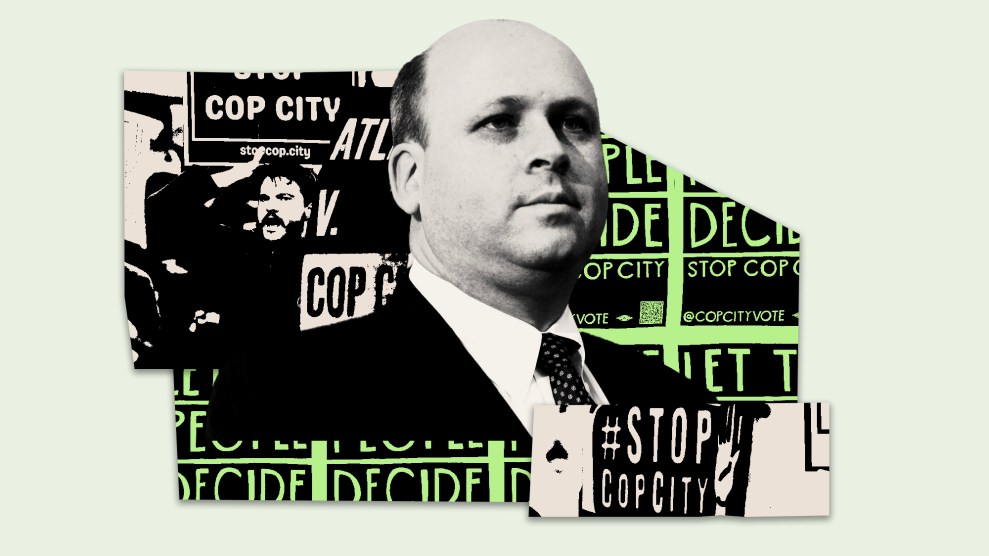The Atlanta Journal-Constitution is now behind an Iron Curtain-like paywall, which is too bad since apparently they ran a great story yesterday about Georgia’s practice of using private companies to collect fines and fees in the criminal justice system. I’ll farm out the job of summarizing the story to the Economist’s Jon Fasman:
It works like this: say you get a $200 speeding ticket, and you don’t have the money to pay it. You are placed on probation, and for a monthly supervisory fee you can pay the fine off in instalments over the course of your probation term. The devil, as ever, is in the details….Those supervisory fees vary markedly: in Cobb County, for instance, just north of Atlanta, the government charges a $22 monthly fee. Private companies charge $39, and often add extra costs on top of that to cover drug testing, electronic monitoring and even classes they decide offenders need.
….Even worse, people who fail to pay the fines imposed by these private companies can find warrants for their arrests sworn out and the period of their probation extended. I spoke with an attorney for a couple in Alabama who say they were threatened with Tasers and the removal of their children if they did not pay the company what they owed. In 2012 a court found that the fees levied by private-probation companies in Harpersville, Alabama, could turn a $200 fine and a year’s probation into $2,100 in fees and fines stretched over 41 months.
Isn’t that great? It’s the free market at work, all right. It reminds me of last year’s piece in the Washington Post about the privatization of the debt collection in Washington DC:
For decades, the District placed liens on properties when homeowners failed to pay their bills, then sold those liens at public auctions to mom-and-pop investors who drew a profit by charging owners interest on top of the tax debt until the money was repaid.
But under the watch of local leaders, the program has morphed into a predatory system of debt collection for well-financed, out-of-town companies that turned $500 delinquencies into $5,000 debts — then foreclosed on homes when families couldn’t pay, a Washington Post investigation found.
As the housing market soared, the investors scooped up liens in every corner of the city, then started charging homeowners thousands in legal fees and other costs that far exceeded their original tax bills, with rates for attorneys reaching $450 an hour.
You may remember this as the story of the 76-year-old man struggling with dementia who was thrown out on the street and had his house seized because of a mix-up over a $134 property tax bill. That in turn might remind you of all the stories you’ve heard about civil asset forfeiture, where local police agencies groundlessly extort property from people convicted of no crimes, and then use the money “for purchasing equipment and getting things you normally wouldn’t be able to get to fight crime.”
Makes you proud to be an American, doesn’t it?















